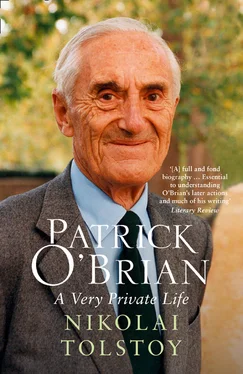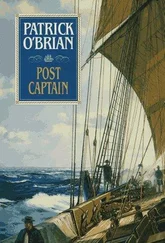Patrick’s parting words on leaving Wales were: ‘if you’re going to be poor, it’s better to be poor in a warm country’. This was to prove true in some respects, and the couple grew adept at living off the land. On 3 September 1951 my mother ‘picked 4 lbs. of blackberries in the river bed, & we made about 5 lbs of jelly’. In the same week they went gathering figs in the mountains at Col de Mollo. The task proved hazardous as well as arduous. ‘Got a dozen ripe ones; trees covered in green ones … P. in tree and I underneath when a chasseur shot at us: shots spat all round. Coming home met Marraine who said the chasseurs are “très mal élevés”, & said Come & see her for some anchovies.’
After a time Patrick, who had been a keen fisherman in Cwm Croesor, took his rod to join men angling at night from the jetty, regularly returning with anything up to half-a-dozen tasty daurades (bream).
But this monotonous and erratic diet was largely seasonal, and there were lengthy spans when little or nothing was available to be picked or caught. They might scarcely have survived, had their sustenance not been supplemented by the wonderful generosity of the warm-hearted Colliourenchs . Typical entries in my mother’s diary read: ‘Mlle Margot called me in with great mystery & filled my basket with huge cauli., 4 eggs, a big onion & 6 oranges, all with hideous embarrassment; she could not meet my eye’; ‘Tante gave us viande hâchée & bones & pâté & a pot au feu’; ‘Mlle Margot brought us 13 fresh eggs & a litre of ? Banyuls “pour demain”’ (Easter Day).
My parents never forgot this kindness, and remained lifelong friends with many of their affectionate neighbours, a sadly diminishing handful of whom remain. Within such a tight-knit community, mutual concern and charitable support were taken for granted. Links of family and friendship permeated the town. When the electrician Cadène was electrocuted at work, some 1,500 people attended his funeral. An incomer, having bought a house in the town, sought to eject the tenants on grounds that they had lately failed to pay rent. The husband had in fact always paid, but on falling ill temporarily proved insolvent. The huissier (bailiff) arrived, together with a removal van, to enforce their departure. The town rose in anger, and, despite the appearance of gendarmes from Port-Vendres, refused to permit the ejection. The van driver declared that he would not have accepted the employment, had he known it was not an ordinary removal, while the ringleader of the town’s resistance was discovered to be gentle Dr Delcos.
The Colliourenchs also possessed enchanting natural courtesy. When King George VI died in 1952, ‘Women come up & say how sorry about King, tears running down their faces. Tricolor at half-mast in place & at post office.’ Women in the shops explained to each other, as my mother passed by, ‘c’est son roi à Madame.’
One neighbour remained for some reason dubious about the extent of this Christian spirit, expressing her view with that decisive emphasis that characterizes the true Colliourencque . At the time of Odette Bernardi’s difficult divorce, my mother ‘offered that O. would be happier if F[rançois]. were to remove her from here, Mlle. M[argot]. agreed “parce que c’est un pays de perdition, Collioure”. She repeated this many times, saying that we do not know – the terrible character of Collioure, unlike any other village.’
As my mother commented on encountering such baffling pronouncements: ‘eh?’
In view of their life of constant privation, it is not surprising that she and Patrick were rarely free from one ailment or another. From June 1950 ‘medecine’ and ‘chemist’ feature remorselessly in their monthly household accounts. In February 1951, ‘P. looked & felt terribly poorly on the 17 th’. Dr Delcos paid regular visits, presenting no bill until that May, when additional expense arose from treatment of the dangerous cyst in Patrick’s hand. In February 1952 ‘P’s rheumatism very bad’; a few weeks later ‘P. went to dr. & had his left ear completely cleaned but it is stone deaf still. The right one hurt dreadfully. He came out with shirt wet through.’ A persistent requirement was medicine for his ‘nerves’. Similarly, my mother was visited by recurrent afflictions: ‘My tum in bad condition’; ‘I slept all afternoon – had vile headache’; ‘Medecine [M’s liver] 530 [francs]’.
Some of Patrick’s troubles appear to have stemmed from unremitting mental strain. ‘Medicine [P’s nervous turn]’, reads a characteristic entry in their account book. A bad attack, the nature of which is obscure, occurred in May 1952, when my mother was staying with her parents in England. At dinner with their neighbours the Rimbauds:
I smoked. In spite of pills I felt the usual trouble coming on, but escaped in time on pretext of seeking Almanach Catalá – on the stairs wondered very much where I was – at home (still on all fours) recovered with dear Buddug’s aid (she was very kind on finding that it was not all a great game, and stood quite still, just touching my face) washed, returned in reasonably good form, and was able to finish the evening without, I hope and trust, throwing any damp.
About this time Patrick compiled a six-page essay, perhaps with a vague view to publication, entitled ‘How to make the best of poverty’. The advice is pragmatic, being based on daily experience:
If you have to go a month on x p[ennies]. you must make do on  fr. the first day, and on each day after that. Never rely on any bank, friend, publisher or business person to send money on a given day
fr. the first day, and on each day after that. Never rely on any bank, friend, publisher or business person to send money on a given day
Do not ever pretend to be rich, with the lower classes. Be as affable as can be with them, but always use a good deal of ceremony – M. and Mme., and formal greetings always.[fn4] If you have to borrow money, do it before you are destitute. Once you have no money at all (literally none) your mind, your values, are terribly distorted.
Careful instructions are given providing advice on giving up smoking: ‘The first few days are hard, but your increasing sense of smugness will carry you through. You end up on a wonderful moral pinnacle, and if you ever start to smoke again they taste exceedingly good.’
When the worst comes to the worst, ‘Exceedingly weak tea without milk is a good drink, if you take it piping hot.’ Even Buddug’s concerns were taken into account: ‘If you have a dog, feed it before your meal begins. You will find it comes too hard at the end.’
With regard to making ends meet:
The food that you can afford when you are very poor needs a great deal of care and preparation to be anything but sickeningly dull. With very great care it can be surprisingly good – garlic, herbs (especially thyme and parsley) flour and a little oil rightly used can give plain potatoes soul and substance.[fn5]
If there are two of you, you would be better advised to leap off a cliff than to allow wrangling to begin. As soon as you are wretched your subconscious, unsavoury mind begins to look about for a scapegoat: you must stop it from picking on the object nearest at hand – the almost invariable object, the loved one.
Furthermore, in a time of poverty you usually have little to do – you do not shop, you do not go out much, paid amusements stop, the sight of your acquaintance is unpleasant – so once quarrelling starts it goes on.
Regular daily routine was essential for preservation of morale:
It is important to maintain the appearance of ordinary life – regular meals (even if they consist of nothing at all but the thinnest tea), an afternoon walk. One has a tendency to stay in bed very late, to stop washing, not to shave … In extreme cases you must give in and go to bed but even then it can be done with a sort of decency. It is platitudinous to point out that you are much richer when you have reduced your needs to a minimum!
Читать дальше

 fr. the first day, and on each day after that. Never rely on any bank, friend, publisher or business person to send money on a given day
fr. the first day, and on each day after that. Never rely on any bank, friend, publisher or business person to send money on a given day










